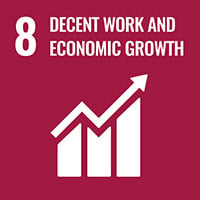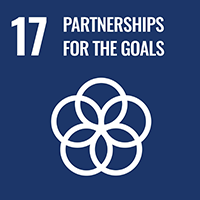Focus area
Mölnlycke expects all its employees to live up to its commitment to complying with applicable laws, regulations and industry codes that are relevant to conducting business ethically. We continuously improve our compliance framework supported by an embedded integrity mindset throughout the organisation.

We set high standards of ethics and responsibility in our business.
We act with integrity and care for human rights1 throughout our value chain.
Our goals
By 2025 at the latest:
- 100% of employees feel safe to report concerns without fear of retaliation.
- 100% of active distributors assessed through the distributor due diligence process.
Mölnlycke is committed to conducting business in compliance with all applicable laws and regulations, industry codes and with integrity and focus on business ethics. Our overall commitments towards Compliance and Business Ethics are captured in our Code of Conduct, which sets the frame for what is expected of Mölnlycke employees and provides guidance on specific risk areas.
Our Code of Conduct demands integrity from our people and is a set of basic standards and criteria that:
- comply with established international standards and guidelines (please see our guiding framework here),
- are aligned with our customers' needs and expectations,
- reinforce our core values of passion, learning and integrity,
- apply to all who work for and together with Mölnlycke.
Respecting human rights at Mölnlycke
In line with the United Nations Guiding Principles on Business and Human Rights (UNGP) and the International Labor Organisation (ILO) Declaration on Fundamental Principles and Rights at Work, we are committed to respecting internationally recognised human rights in all our operations (please see our guiding framework here).
We strive to prevent the violation of human rights and to remediate the possible impact on human rights resulting from the activities in our value chain. This includes issues such as forced labour, the workplace and working conditions, gender and race discrimination, unfair competition and corruption.
In the same way, we set challenging targets for our suppliers and distributors in order to ensure ethical business throughout our value chain. We routinely conduct supplier audits to assess the health of our suppliers’ quality systems. Our audits include interviews with workers, interviews with management, inspection of the production site and a review of records. Our supplier premises may also be audited by our Notified body or the Competent authority in the territory in which the supplier is based.
If we identify that a supplier is violating their employees’ human or employment rights, we either cease doing business with them or we expect them to put things right quickly. We ask suppliers to acknowledge within 48 hours that they have inducted it into their problem-solving system, understood it and are seeking to resolve the problem.
At the end of 14 days, we expect our suppliers to either document how they have solved the problem or submit a detailed plan explaining what actions will be taken and a projected completion date. We then require evidence to show that the non-conformity has been corrected.
We recognise and respect our employees’ rights to freedom of association and assembly, as well as collective bargaining and do not interfere with the exercise of such rights in any way.
We have a zero-tolerance approach to modern slavery of any kind. We define modern slavery to include child labor, debt bondage, forced labor, human trafficking, servitude, slavery and slavery-like practices. Follow the link and find our Statement on slavery and human trafficking, approved by the board of Mölnlycke Health Care AB and signed by our CEO Zlatko Rihter.
We encourage our colleagues, business partners and people affected by our activities or products to raise complaints and grievances about any potential human rights concerns and we will address them fairly and in accordance with laws.
1Human rights at Mölnlycke include fair treatment of every employee, no tolerance for child or forced labour, the right to freedom of associations, including the right to collective bargaining.
RELEVANT SUSTAINABLE DEVELOPMENT GOALS
 |
 |
 |






